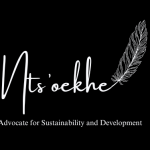To the Curious and Keen Observer,

As I welcome you to the first publication of our column, we find ourselves witnessing Lesotho’s transformation. Yet, an undeniable question lingers: how has foreign influence shaped our landscape, and at what cost? Foreign nationals are not only constructing buildings or maintaining infrastructure; they’re claiming ownership of our land, building commercial hubs and rental properties that yield substantial profits—profits that often benefit them more than the people of Lesotho. For Basotho, this trend threatens the very future of our urban spaces and leaves us wondering who will ultimately own our cities.
The path leading here is partly of our own making. Our laws around citizenship have become permissive, making it easier for non-citizens to obtain Lesotho citizenship and, with it, the rights to land acquisition. This, coupled with the temptation of quick financial gain, has led many to sell their land, forgetting the long-term consequences that could reshape Lesotho’s property landscape beyond recognition.
Yet, a brighter future is still within reach. The upcoming financial budget offers a golden opportunity to address this issue. Imagine a budget that emphasizes housing policies favoring Basotho, encouraging ownership and development initiatives tailored for locals. If government action isn’t enough, then let the power of a united community lead the charge. Together, we can create a Basotho-led real estate initiative, reclaiming urban spaces for Basotho ownership and ensuring a legacy for our youth.
Encouragingly, there are examples of local success stories that shine light on what’s possible. The Alliance in Mohale’s Hoek is one such initiative, where Basotho ventures have joined forces to purchase and develop properties, showing us the strength of community action.
We need only look across our border for further inspiration. In Botswana, the Botswana Housing Corporation (BHC) secures land and allocates around 44% of its rentals to government, striking a balance between public and private interests. Their Youth Housing Units, with 636 affordable units tailored for young citizens, also underscore the critical need to prioritize youth housing—a step we too must take, especially given the youth-driven future of our nation.
The time is ripe to turn our focus inward, investing in Basotho ownership within our urban centers and housing markets. Together, we can commit to a Lesotho where land, homes, and economic growth primarily serve Basotho interests. This vision aligns with Sustainable Development Goal 11-Sustainable Cities and Communities, which calls for inclusive, safe, and sustainable urban development. It also reflects the United Nations Declaration on Human Settlements, which emphasizes the right to adequate housing and fair access to land and urban resources. By grounding our growth in these principles, we can create a future where urban development truly benefits all Basotho.
Yours Truly,
Nts’oekhe





